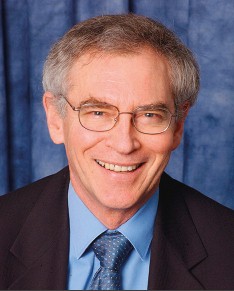
Professor Alfred Allan
Professor Alfred Allan is qualified in law and psychology and a registered psychologist with clinical and forensic endorsements. He is currently Professor of Psychology at Edith Cowan University, Perth. He has taught law, psychology and professional ethics in Law, Medical and Psychology Schools in South Africa and Australia. He is a Director and the Chair of the Standing Committee on Ethics of the International Association for Applied Psychology (IAAP), a Fellow of the Australian Psychological Society (APS) and a foundation member of the Psychology Board of Australia (PsyBA).
What was your involvement in the Code of Ethics review?
I was involved in the last revision of the APS Code of Ethics in 2005 and was Chair of the Ethics Committee. We had identified some issues with it. We recommended to the APS Board that it should be reviewed and I was put in charge of the Taskforce that undertook the review.
Where you familiar with the development of the Code in previous years?
The APS Code goes back to 1949 and was really the first Code of its kind. It was the Australian Branch of the British Psychological Society that developed the first national code. They were worried about the harm done to psychology by unqualified people. They wanted to get guidelines in place. It was all about the professionalisation of psychology. I think the American Psychological Association’s Code was only published in 1953.
Why do you think Australian psychologists were a bit further ahead?
I suspect it was because we were a smaller group of people and therefore better positioned. In America, they decided to start looking at their code at the same time but they also undertook a broad survey to inform their code. From that perspective, they did a better job than we did.
It is true that the Code was considered the gold standard?
The Act provides that the PsyBA can develop or adopt a code. And so the APS Code was adopted by the PsyBA in 2010. Since then it has applied to all psychologists in Australia, irrespective of whether or not they are APS members.
How did the development of the Code mirror the emergence of the profession?
Professions were seen to be self-regulating. A profession has no standing or credibility if it doesn’t do what society wants it to do. In order to do that, it needs a Code of Ethics. The APS Code is part of the professionalisation of psychology. The APS has been well-served by it. Compared to some other professional bodies, we’ve always had a well-accepted Code.
In 2005, what particular aspects needed updating?
The Code is dynamic because professional morality is dynamic. There had been significant legislative changes. Probably the most important was the amending of the Commonwealth Privacy Act of 1988, which had implications for privacy, among a number of other issues. There was also a move around the mid-1990s towards more principle-based codes. The APS Code had principles but these were not so well linked to the standards of the Code. The review also modernised the Code a bit too.
Why did you choose a career a psychology?
My background is actually in law. I was always interested in psychology and the behaviour of law, how the law operates and people’s ability to observe and testify. In the 1980s, I tried to do a law doctorate but wanted to introduce psychological constructs and was told it was too psychological so started studying psychology, with the intention of studying it from a legal point of view. But as I got more involved and understood how relevant psychology was to law, I got more interested in it so did an Honours. Then to understand it more, including mental disorders, I felt I needed to study clinical psychology, which became a PhD. The PhD looked at the psychologist as a witness, combining law and psychology.
How has psychology changed over the years?
Over the last couple of decades, society has become more critical of professions, monitoring what they do and telling them what they should be doing. Society, and therefore governments, is also becoming increasingly risk adverse. It means that law expects all psychologists to have certain generic competencies.
What key achievements of the APS spring to mind?
The APS, as far as its Code and set of practice guidelines are concerned, has done a really great job. Compared to other professions, the governance part of the profession has been well served by the APS.